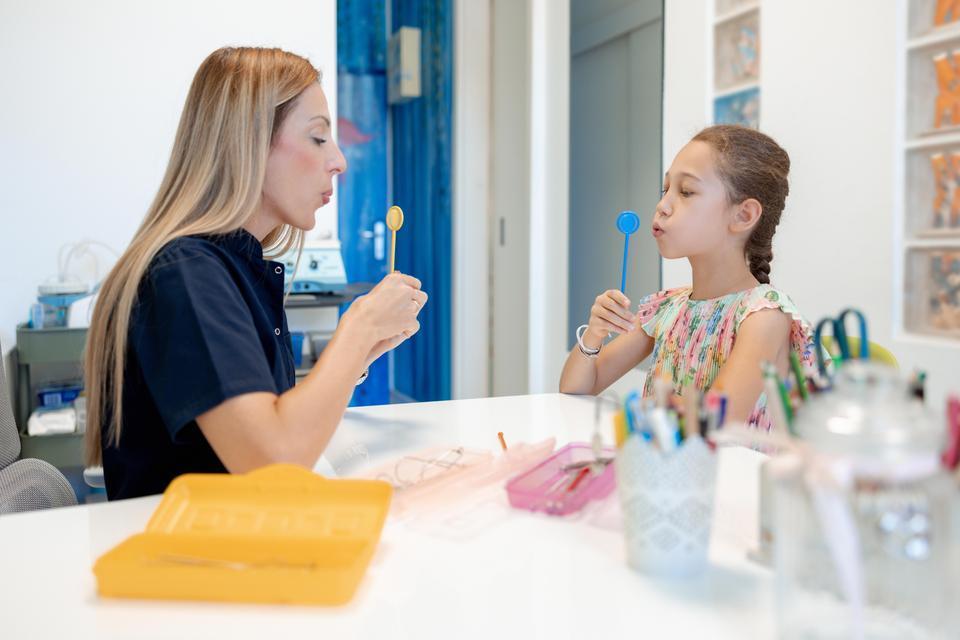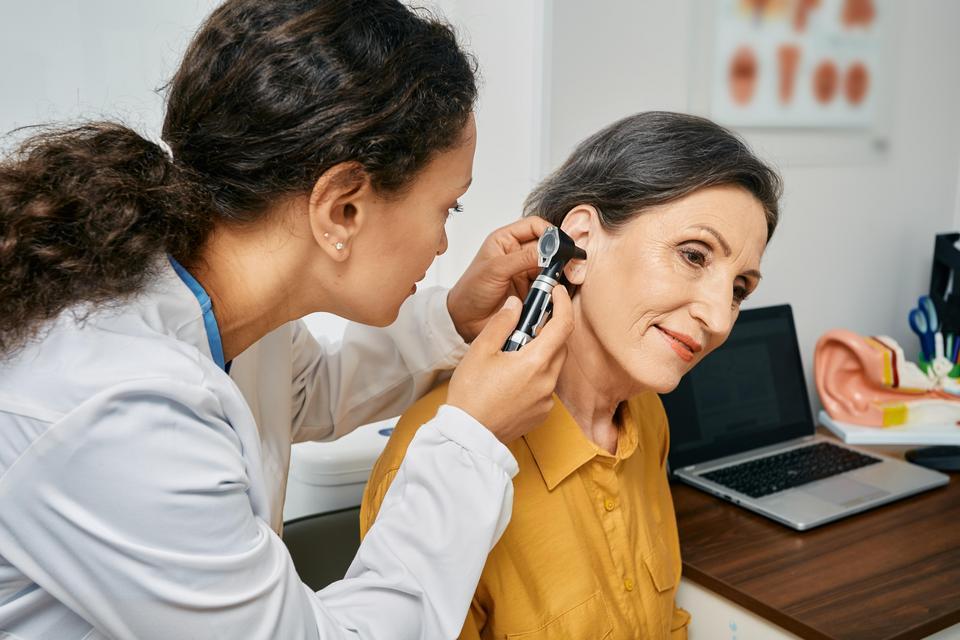Tongue and lip ties are common concerns for parents of infants and toddlers.
What is a tongue tie?
A tongue tie (medically known as Ankyloglossia) is a congenital (by birth) condition where a short, tight band of tissue attaches the bottom of the tongue's tip to the floor of the mouth, thereby restricting its motion. It is normal to have tissue that connects from the bottom of the tongue to the floor of the mouth, however, if the tissue is tight, restricts motion, or is abnormally short this can cause speech sound development issues and difficulties with eating.
What is a lip tie?

There is a band of tissue behind your upper lip that connects it to the gums. This is called the labial frenulum. When it is too tight or thick, it can restrict the movement of the upper lip, resulting in a lip tie. Lip ties can affect feeding, especially for infants while breastfeeding or bottle feeding. If the tissue is very thick or goes down to the bottom of the upper gum line, it can also impact the way the upper teeth grow in.
How can tongue and lip ties affect development?
Many people have these pieces of tissue in their mouths. If the tissues are too tight and restrict movement, it can affect development including causing speech sound development issues and difficulties with eating a variety of foods. These restrictions and their impact on how the tongue functions can also impact the growth and development of the bones in the jaw and palate (roof of the mouth).
“At Altru Pediatric Therapy we have experience helping parents who may have concerns about tongue and/or lip ties affecting feeding skills,” says Ilse Clauson, an occupational therapist at Altru. “Several of our therapists are working with kiddos who have these difficulties on a weekly basis.”
I think my child may have a tongue or lip tie, what should I do?
If you think your child has a tongue and or lip tie and they are having a challenging time eating and/or with speech sound development this should be brought up to your pediatrician or primary care provider. If you are concerned about your child’s development, ask your pediatrician to send you a referral to a speech and or occupational therapist to evaluate their feeding and speech development.
“We collaborate with patients' primary care providers and other specialists to establish a plan of action to address tongue and lip ties and optimize patient's feeding skills,” explains Ilse.
If your Ear, Nose and Throat doctor feels the tongue and/or lip tie is severe enough they may recommend releasing or cutting the ties surgically. After this is done your child will continue therapy to promote optimal healing, development of normal speech sounds, and age-appropriate eating skills. At Altru Pediatrics Therapy Clinic we have a therapist trained in the orofacial complex who can provide treatment pre- and post-operatively.
If you have concerns about tongue or lip ties please speak to your pediatrician about diagnosis and treatment options.







